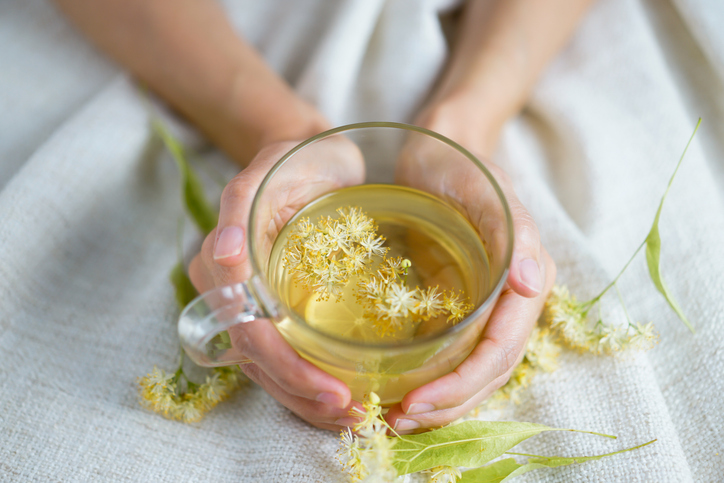What is a Good Natural Anxiety Medicine?
Jan 21, 2025
Anxiety can have a way of creeping into our lives, leaving us feeling overwhelmed and disconnected. For some, it’s the all-encompassing grip of general anxiety, and for others, it’s high-functioning anxiety—the kind that hides behind the facade of having it all together. Regardless of how it shows up, anxiety doesn’t just impact your mental well-being; it can also affect your hormonal health, sleep, digestion, and overall quality of life.
In our practice, we rarely recommend the typical anxiety medicines such as benzodiazepines, antihistamines, beta-blockers, and SNRIs. Instead, we try a range of lifestyle modifications, foods, vitamins and botanicals.
Let’s dive in and explore some natural remedies that can help ease anxiety and support your body in finding balance.
Foods That Calm the Mind and Body
The foods you eat play a significant role in how your body manages stress and anxiety. Incorporating calming, nutrient-dense foods into your diet can be a simple yet powerful way to support your nervous system. Some of my favorites include:
- High-fiber foods like oats, pumpkin seeds, and spinach
- Berries for their antioxidant support
- Citrus fruits rich in vitamin C
- Fish like salmon and mackerel for their omega-3s
- Fermented foods like sauerkraut for gut health
- Chamomile tea for its soothing properties
- Eggs and other lean meats for B vitamins and zinc
- Dark chocolate (yes, really!) for its magnesium content
When asking yourself, ‘what is a good natural anxiety medicine?’, don’t underestimate the power of food. What you eat can have a profound impact on calming your body and mind.
The Power of Vitamins and Nutrients
B Vitamins
B vitamins are essential for nervous system function and hormone balance. Studies show that supplementing with B vitamins can reduce feelings of anxiety and stress, particularly in individuals with nutrient deficiencies.
Top sources: Eggs, chicken, salmon, yogurt, leafy greens, avocado, and legumes.
Vitamin D
Vitamin D plays a key role in mood regulation and brain health. Research suggests a potential link between low vitamin D levels and anxiety disorders.
Top sources: Oily fish, egg yolks, and mushrooms.
Omega-3 Fatty Acids
Omega-3s are essential fats that support brain health and reduce inflammation. Studies indicate that a low intake of omega-3s may increase the risk of anxiety, while supplementation can help alleviate symptoms.
Top sources: Salmon, flaxseeds, eggs, and walnuts.

Botanicals: Nature’s Anxiety Support
Botanicals are an effective way to support anxiety naturally. Unlike medications that target a single pathway, botanicals often work in harmony with your body to provide a broader range of benefits. Here are some of my go-to botanicals for calming the mind and body:
- Passionflower: Comparable to some anti-anxiety medications, passionflower helps reduce stress and enhance the effectiveness of conventional treatments.
- Ashwagandha: This adaptogen has been shown to reduce anxiety when taken consistently over 12 weeks.
- Lemon Balm: Clinical research shows it can ease anxiety-related symptoms and promote relaxation.
- Chamomile: A gentle herb proven to reduce anxiety over eight weeks of regular use.
- Lavender: Aromatherapy with lavender oil can reduce anxiety, particularly through massage or inhalation.
- Rhodiola: This adaptogen helps the body adapt to stress and has been linked to reduced anxiety levels.
High-Functioning Anxiety: What You Need to Know
High-functioning anxiety often looks polished and put together on the outside, but inside, it’s a different story. If this resonates with you, know that you’re not alone. High-functioning anxiety often involves:
- Racing thoughts
- Perfectionism
- Second-guessing decisions
- Trouble sleeping
- Fear of failure
- Overthinking and catastrophic thinking
If you’re navigating this, it’s okay to ask for help. Small, intentional steps—like nourishing your body with the right foods, incorporating calming botanicals, and making time for self-care—can make a world of difference.
Taking the First Step
Managing anxiety naturally is about more than quick fixes—it’s about creating a lifestyle that supports calm and balance. Start with small changes, like sipping chamomile tea, adding omega-3-rich fish to your meals, or exploring the benefits of botanicals.
Most importantly, remember that asking for help is a sign of strength, not weakness. If anxiety feels like it’s taking over, consider reaching out to a healthcare provider to create a personalized plan that works for you.
Your path to calm starts here. Let us help you take the first step.
Sources:
https://www.sciencedirect.com/science/article/abs/pii/S0022395617307434
https://pmc.ncbi.nlm.nih.gov/articles/PMC6979308/
https://pmc.ncbi.nlm.nih.gov/articles/PMC6750292/
https://pmc.ncbi.nlm.nih.gov/articles/PMC5646235/
https://pmc.ncbi.nlm.nih.gov/articles/PMC6007527/
https://pmc.ncbi.nlm.nih.gov/articles/PMC7766837/
https://www.nimh.nih.gov/health/publications/generalized-anxiety-disorder-gad
https://www.ncbi.nlm.nih.gov/books/NBK441870/
https://pmc.ncbi.nlm.nih.gov/articles/PMC9577631/
https://onlinelibrary.wiley.com/doi/10.1002/hup.2852
https://pmc.ncbi.nlm.nih.gov/articles/PMC6770181/
https://www.sciencedirect.com/science/article/abs/pii/S1756464617307077
https://jamanetwork.com/journals/jamanetworkopen/article-abstract/2702216
Unlock Your Hormone Health With Our Free Checklist
You deserve to know what is going on with your body and to understand why (or even IF) you have hormonal imbalances.
So we created this FREE resource to help guide you with some of the top labs and tests to consider.







